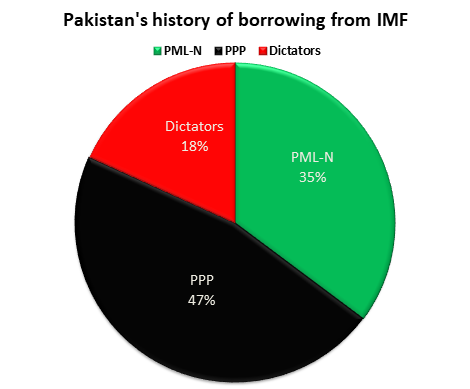The IMF and Pakistan: A Complex Relationship
Introduction
The International Monetary Fund (IMF) has played a significant role in Pakistan's economy over the years. The relationship between Pakistan and the IMF has been a complex one, marked by ups and downs, successes and failures. In this blog post, we'll take a closer look at the history of the IMF in Pakistan and explore some of the key issues that have shaped this relationship.
Background
Pakistan has had a tumultuous economic history, marked by frequent economic crises, inflation, and a high level of debt. The country has turned to the IMF for financial assistance multiple times over the years, with the first loan agreement signed in 1958. Since then, Pakistan has received a number of IMF loans, with the most recent one being approved in 2019.
IMF Programs in Pakistan
IMF programs in Pakistan have typically focused on reducing the budget deficit, stabilizing the exchange rate, and increasing foreign exchange reserves. These programs have often required the Pakistani government to implement a range of economic reforms, including reducing subsidies, increasing taxes, and privatizing state-owned enterprises.
Challenges and Criticisms
The IMF's involvement in Pakistan has not been without its challenges and criticisms. Some experts have argued that the IMF's programs have led to social and economic hardships for ordinary Pakistanis, including higher inflation and unemployment. Critics have also accused the IMF of imposing policies that are not in the best interests of the Pakistani people.
Successes
Despite the challenges and criticisms, there have been some successes in Pakistan's relationship with the IMF. The country has been able to stabilize its economy and reduce its budget deficit with the help of IMF loans. In addition, the IMF has played a role in promoting economic reforms that have helped to create a more stable and sustainable economic environment in Pakistan.
Future Prospects
The future of Pakistan's relationship with the IMF is uncertain. The country is still grappling with a range of economic challenges, including high levels of debt, inflation, and a widening current account deficit. The COVID-19 pandemic has further exacerbated these challenges, making it even more difficult for Pakistan to address its economic issues. The IMF may continue to play a role in Pakistan's economic future, but it remains to be seen what form this relationship will take.
Conclusion
The relationship between the IMF and Pakistan has been a complex one, marked by both successes and challenges. While the IMF has played a role in stabilizing Pakistan's economy and promoting economic reforms, it has also faced criticism for imposing policies that are not in the best interests of the Pakistani people. As Pakistan looks to address its ongoing economic challenges, it will be important to balance the need for financial assistance with the need to promote sustainable economic growth and protect the well-being of ordinary Pakistanis.







No comments: